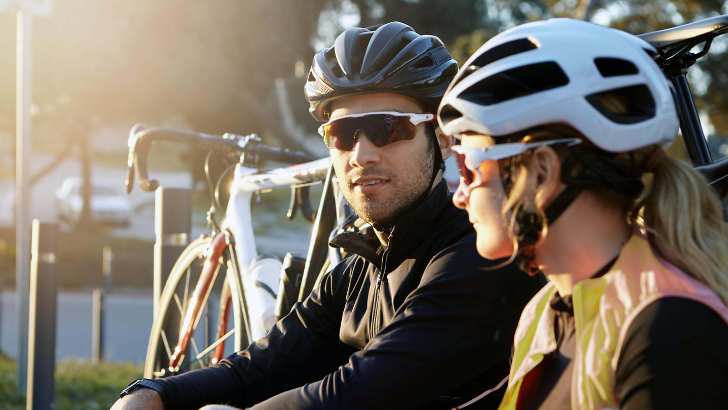
What is bicycle insurance?
It’s there for those unexpected moments – you know, when your bike gets damaged during a mountain biking adventure or when you return from the supermarket and find your parked bike has vanished.
That’s where bicycle insurance swoops in, like the friendly neighbour that steps in to help when you need it most. It won't prevent accidents or theft, but it's there to help you pick up the pieces afterwards.
We’ve buddied up with Cycleplan to give you up to a 50% discount off their bike insurance for your bicycles and accessories, both at home and while cruising out and about.
Cycleplan also offers cyclists' liability cover, which protects you if you accidentally injure someone or damage property while cycling. And if you happen to be the proud owner of not just one, but multiple bikes, Cycleplan’s multi-bike cover makes sure that all your bikes get the protection they deserve.
*Cycleplan’s 50% discount can change or stop at any time. You won’t get this discount if you’re renewing your policy.
How does bicycle insurance work?
When it comes to keeping your wheels safe and your cycling adventures worry-free, Cycleplan offers two main cover options. You can pick one or both.
Up to £30,000 bike cover for theft, loss and accidental damage
Cover if your bicycle is stolen, accidentally damaged or vandalised. This includes new for old replacement. If your bike is stolen and you bought it new less than three years ago, Cycleplan will replace it with a brand new one.
Up to £5m cyclists' liability cover
Covers the costs of any claims made against you if you accidentally injured someone or damaged property while cycling.
Do I need bicycle insurance?
It isn’t something the law demands, but lack of cover could throw a real wrench into your biking joy if life takes a bumpy turn. Especially if you’re a regular user of your bike or it’s a trusty mode of transport for you, bike insurance provides well-needed security for unfortunate mishaps.
Besides bicycle insurance, there are other things you can do to protect your two-wheeled ride, such as using a quality lock and removing the easy-to-steal parts.
How much is bicycle insurance?
To know how much your bike insurance will cost, Cycleplan will look at your bike type, your age, where you keep it, and its price. Once they have all these pieces, they’ll create a custom quote just for you.
Does my existing home insurance cover my bicycle?
Before you get new bike cover, hold onto your handlebars – your bike may already be protected by other insurance, like your home insurance.
Look at the insurance you already have to see how your bike is or isn’t covered. For example, it might cover your bike while it’s in your garage, but not when it’s away from your home.
By knowing what’s already covered for your bike, you can avoid doubling up and you can see where things aren’t covered but you want them to be. Just make sure your bike cover meets all your needs.
What does Cycleplan's cycling and bicycle insurance cover?
Cycleplan covers both pedal and electric bikes including:
Make sure you’re comfortable with what’s not covered, including:
Full policy wording can be found on Cycleplan's website when you get a quote, for full information on what is and isnt included in your policy.
Amp up your cover with optional add-ons
Cycleplan’s flexible cover lets you tailor to fit your needs. Just add the extras you want as you go through your quote, and they’ll show you the total price for them when you’ve finished.
Still got questions? Contact Cycleplan
0800 092 9268
Monday to Friday: 9:00am - 5:30pm
Saturday: Closed
Sunday: Closed
To protect both of us, we might record and listen to these phone calls. Calls to 0800 numbers from UK landlines and mobiles are free. When you dial 03 numbers, the cost is the same as a regular call (how much it costs can change depending on your network), and they are usually included in your minute plans for landlines and mobiles.
How to claim
If you need to make a claim, please get in touch with Cycleplan's trusted claims handlers Davies Group on 0333 400 7387
Or email newclaim.cycleplan@davies-group.com
For theft or malicious damage claims, tell the police as soon as possible about the loss or damage and ask for a crime reference number.
So that your claim can be processed quickly, you’ll need:
- Your policy number
- The date the incident took place
- Evidence of ownership
- Photographs of the bike
- Crime reference number (if applicable)
- Any damaged items or locks


